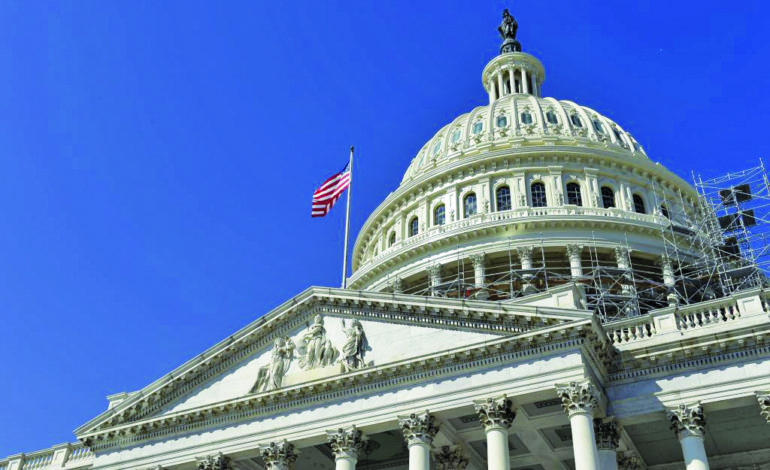WASHINGTON, D.C. – On Thursday, the U.S. House of Representatives voted in support of updated legislation to address the continued COVID-19 public health crisis and provide desperately needed support for struggling families and essential workers.
The package includes funds for testing and tracing measures, support for frontline workers and more assistance for U.S. families. The updated Heroes Act addresses needs that have developed since the House passed an earlier iteration and reflects negotiations between Democrats and Republicans. It now awaits approval from the Senate.
Among the bill’s many provisions, it:
Provides a robust second round of economic impact payments of $1,200 per taxpayer and $500 per dependent.
Restores unemployment benefits, ensuring weekly $600 federal unemployment payments through next January and prevents unemployed workers from exhausting their eligibility, applicable to gig-economy workers as well.
Contains $436 billion to provide one year’s worth of assistance to state, local, territorial and tribal governments who desperately need funds to pay vital workers like first responders and health workers.
Supports testing, tracing and treatment, through $75 billion for coronavirus testing, contact tracing and isolation measures, with special attention to the disparities facing communities of color. The updated bill also includes $28 billion for procurement, distribution and education campaigns for a safe and effective vaccine.
Protects payrolls, by enhancing the new employee retention tax credit that encourages employers to keep employees on the payroll.
Ensures worker safety, by requiring OSHA to issue a strong, enforceable standard within seven days to require all workplaces to develop and implement infection control plans based on CDC expertise.
Preserves health coverage, protecting Americans losing their employer-provided health insurance by making unemployed Americans automatically receive the maximum ACA subsidy on the exchanges, as well as a special enrollment period in the ACA exchanges for uninsured Americans.
Bolsters housing assistance, with tens of billions in new supports to assist renters and homeowners make monthly rent, mortgage and utility payments and other housing-related costs to prevent homelessness.
Strengthens food security, addressing rising hunger with a 15 percent increase to the maximum SNAP benefit and additional funding for nutrition programs and targeted support for farmers and producers impacted by the crisis.
New resources to ensure safe elections, an accurate Census and to preserve the Postal Service.
Dingell-led provisions included in updated bill
The Heroes Act honors the service and sacrifice of our nation’s heroes and meet the needs of the American people today and through the coronavirus crisis. The Senate must act. Period. — U.S. Rep. Debbie Dingell (D-Dearborn)
“Over the past four months we’ve seen the need for more action, more support and more to combat the coronavirus crisis,” said U.S. Rep. Debbie Dingell (D-Dearborn). “We’ve seen disabled people evicted from their homes, kids returning to schools without funding to meet technology or sanitary needs, not to mention – the cases and deaths are devastating. We have a responsibility to take action to protect the health and well-being of all of our communities.
“The Heroes Act honors the service and sacrifice of our nation’s heroes and meets the needs of the American people today and through the coronavirus crisis. The Senate must act. Period.”
Dingell fought for and successfully included many provisions in the Heroes Act. Among these provisions — some co-led with U.S. Rep. Rashida Tlaib (D-Detroit) — are prohibiting water shutoffs nationwide, financial assistance for low-income households to pay for drinking water and utilities, security for seniors and people with disabilities, worker safety and funding for Violence Against Women Act (VAWA) programs.
Updated legislation with further funding for small businesses, education
An analysis prepared by the Congressional Research Service estimates that the Heroes Act will provide:
- More than $7.47 billion to the state of Michigan,
- $458 million to Wayne County
- $99 million to Washtenaw County
- And $255 million for localities in or partially in Michigan’s 12th District, (breakdown by city available at Dingell’s congressional website)
The updated legislation includes:
- Strong support for small businesses, by improving the Paycheck Protection Program to serve the smallest businesses and struggling non-profits, providing hard-hit businesses with second loans, and delivering targeted assistance for the struggling restaurant industry and independent live venue operators.
- Additional assistance for airline industry workers, extending the highly successful Payroll Support Program to keep airline industry workers paid.
- More funds to bolster education and child care, with $225 billion for education — including $182 billion for K-12 schools and nearly $39 billion for postsecondary education — and $57 billion to support child care for families.






Leave a Reply